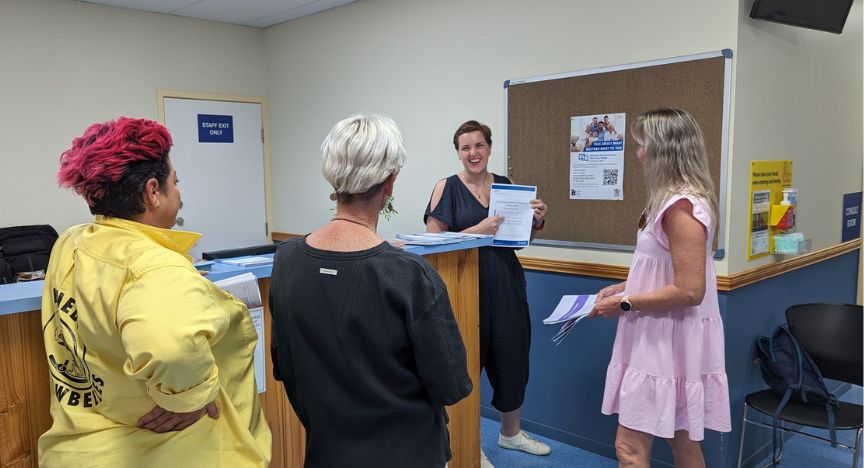
Most people are aware of how important it is to have a Will when they pass away, what’s less well known, but probably just as important, is having an advance care plan.
Central West Hospital and Health Service Palliative Care Coordinator Irene Scott said an advance care plan (ACP) could help ensure people received the care and treatment that was important to them, and ensure their wishes were respected.
“Preparing an advance care plan isn’t always about death – it’s also about your life and how you want to live it,” she said.
“It’s for everyone over the age of 18. This year’s National Advance Care Planning Week from 18–24 March was a good time to consider putting such a plan in place if people did not have one already, Ms Scott said.
“We spend a lot of time planning for the other big events in our lives such as weddings or the birth of a child, but many Australians are still not comfortable talking to their family or doctors about their wishes if they were to become seriously unwell,’’ she said.
“It is important to have the conversation with family and close friends, and it’s also very helpful to have your wishes in writing.
“We want to help people prepare for a time when they may be too sick to speak for themselves because none of us want a scenario where our families and doctors are left to make tough decisions.
“Advance care planning can give everyone a voice so your health care remains your choice, regardless of what the future brings,”
“Families and clinicians want to make decisions with confidence that this would be what the person wants. These discussions make it much more likely that your end of life wishes come true.”
An Advance Health Directive, Statement of Choices and Enduring Power of Attorney are forms that lead people through that communication.
“These documents should then be shared with your family and anyone else who may be involved in your care, including your team at our health service or the Queensland Statewide Office of Advance Care Planning,’’ Ms Scott said.
“There is no doubt conversations about dying and death can be confronting and emotional, but they’re very valuable to have ahead of time.
“As hard as the conversation can be, it will save your loved ones from having to make difficult decisions on your behalf without knowing what you would have wanted.
“Your doctor can provide information and outline possible options for you, the implications of your choices and clarify what might happen if you want to receive or refuse certain kinds of
medical treatment.
“This is particularly important for people who are already suffering from a terminal illness but it’s also useful should you temporally or permanently lose capacity.
“It is most useful to have these discussions in a timely and considered fashion, rather than at the time of a health crisis, where emotions can run high.
“These documents should then be shared with your family and anyone else who may be involved in your care, as well as providing copies to the Queensland Statewide Office of
Advance Care Planning and uploading to your medical record.
“It is important to remember you can review your plan at any time.
“Your decisions are not set in stone and may need to be updated for any number of reasons including a change in your medical circumstances, a change in your living arrangements, or simply a shift in your beliefs or values.”
The My Care, My Choices Advance Care Planning website is a great source of information on advance care planning, advice on completing ACP documents and resources to help guide people’s planning process.